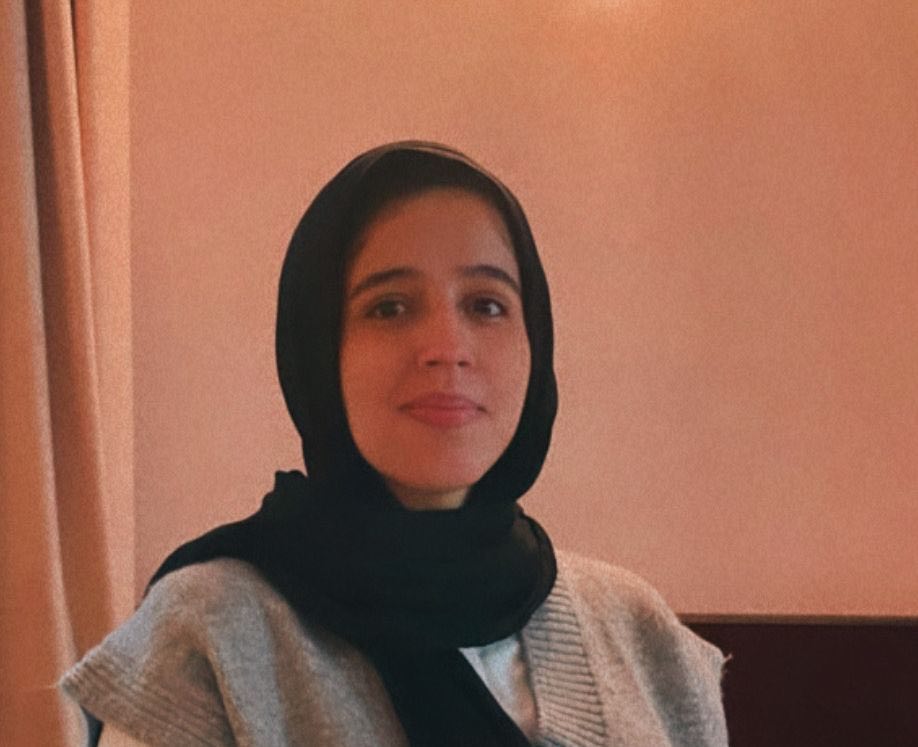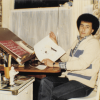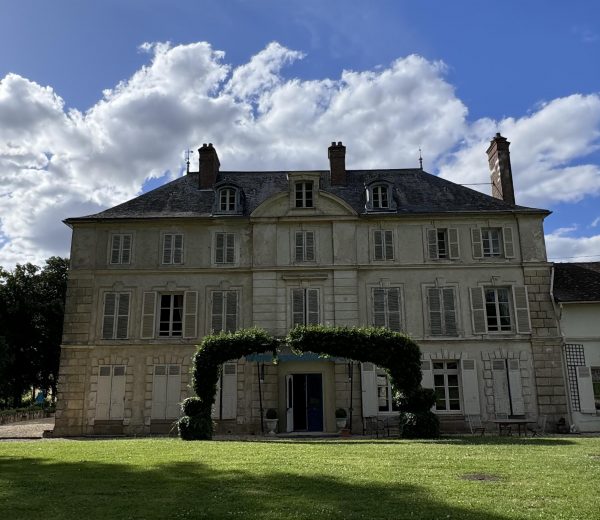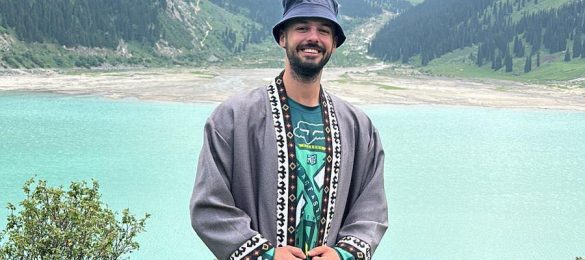
In March, I turned 30. It is the age that is considered a turning point for many young adults. For me, turning 30 happened quickly, and I only realized it a few months earlier. It caught me off guard, and not to lie, I was a little nervous by how quickly time passed. Nevertheless, I realized it is usually the case, and you will never be fully ready. Especially since turning 30 is considered different from any other age. It is turning into a different phase of adulthood even though you’ve become an adult during your twenties. I’d like to call or think of turning 30 as an upgrade.
I have heard so much about turning 30 and officially starting your thirties. Many people I talked with a few years ago expressed stress or concern. Back home, and I believe it is the case for many communities worldwide, turning 30 means you should have created a sense of stability on many levels. In other words, you have started or are starting a family to be considered settled according to social criteria. However, stability is also about being mentally and emotionally stable to be able to start a family at some point.
As I reached the end of my twenties, I still didn’t feel the pressure of reaching my thirties. There was a sense of truly living my age that I lived by for so long. Looking back, I am glad I lived and did my best to give it all. In this article, I hope to illuminate the main lessons I learned during my 20s. I am grateful to those years for showing me so much and giving me many experiences, for which I will always be thankful.
1. Live Your Age & Enjoy It
During my 20s, I tried my best to live every age, even when challenges arose. Unfortunately, sometimes, certain circumstances force you to grow before your time or make you act differently from your age. I observed this when I was back in Libya. From a young female perspective, young girls must grow before their time. For instance, if one acts young, she would be considered immature.
Given my personality and my surroundings at that time, I think I managed to live each age and enjoyed being young. However, I hope those in their twenties consider this and do their best to live their age fully. Although you are considered a grown-up in your 20s, do not limit yourself. In addition, do not focus so much on getting older that you deprive yourself of living your age. Being 25 is not equivalent to being 22 or 28.
2. Overthinking Won’t Change the Outcome
Looking back on my 20s, I spent over half of them as an overthinker. This deprived me of enjoying the moment and truly living. I remember many occasions when I could not do anything because of overthinking and lived waiting for the storm to pass instead of passing through it. Overthinking ruined so much for me. It led to a point where I felt that time froze. In reality, time passed, and it did not wait for me.
Since Covid-19, I no longer consider myself an overthinker. Spending COVID-19 alone abroad while finishing a master’s degree and navigating through professional life made me realize many things not only about myself but also about life in general. One of the things that I worked on was acceptance and living through situations. Time won’t wait for me, and overthinking won’t change the outcome, no matter how hard I try. I believe in accepting and finding good in every bad situation, which changed so much for me. I am glad I managed to live in peace in my late twenties.
3. Quality Over Quantity
During your 20s, there is always this notion of wanting to make so many friends and have a big community or network. Indeed, making connections and having friends is valuable. After a while, you will realize that having too many friends is not the answer. Also, having too many friends does not necessarily equate to real friendships.
As I got older and passed my mid-twenties, I realized that having too many friends was unhealthy. They were not really friends but people I only knew based on certain circumstances. By the end of my twenties, I had only a few people I consider real friends. Still, I also maintained healthy relations with people who were not close friends, but they remain people I highly respect, and I am happy to stay connected with them. Considering the quality of your relationships and friendships is important, and choosing your people wisely is essential. I wouldn’t lie; going through relations that do not work or go wrong is also part of building experience. However, when it comes to real friendships, choose your people wisely. Keep close those who care about you and wish the best for you.
4. Build Healthy Boundaries
During my early 20s, I always made excuses for people and prioritized them over myself. I quickly forgave and made excuses for people who hurt me, putting their feelings before mine. With time, my perspectives shifted, and I started to build boundaries on how I wanted people to treat me. This is related to self-respect; you won’t allow others to cross your line when you respect yourself enough.
When you have poor relations, people will cross their lines, which is related to having no boundaries. That would allow them to get away with everything. I learned that when you force your boundaries, manipulative people will try to make you question yourself and will consider you arrogant. Stick to your ground, and soon, you will see that those who remain are the ones who respect you with the boundaries you have. Also, building boundaries could feel a little lonely sometimes, but having self-respect at some point will matter more.
5. Actions Over Words
Words usually have great value and importance as they are linked to making promises. When someone keeps their word, you build trust with them. However, words do not always equate to trust or truthfulness. Unfortunately, many make “words” they will never live up to or keep. I learned that not many people keep their words to you; many words are lies. It is on you to look clearly and wipe off the foggy vision.
Over time, I started to see people for what they first showed me. Claiming certain words won’t change the manipulation or hurt; it will only worsen them. Believe people’s actions as they reveal people’s real intentions regardless of their words. As I learned this the hard way, it helped me develop healthy boundaries and put an end to friendships or relationships that drained me mentally and emotionally. They took too much effort and energy, which I consider wasted. I may have learned this hard, but I gained so much peace and comfort during my late twenties.
6. Your Mental Health Matters
We live in an age where mental health is widely and globally discussed. With the power of social media, many have used their online space to raise awareness. This has made a huge shift and possibly progress related to mental health. At the beginning of my twenties, I thought my self-awareness was at a good level. When I moved abroad and began to spend time with myself, I found out that my self-awareness wasn’t really good.
During that period, I struggled to express my emotions, I used to be aggressive in my encounters, and I struggled to have healthy relationships and had attachment issues. Since then, I decided to make a change and see a psychologist. It wasn’t an easy decision, given that I didn’t tell my parents about my decision and only shared this with them about a year later. I have been seeing one for about four years, and it has changed so much. I got to learn and know myself better; through the help of my doctor, I learned how to express my emotions better and dictate my relationships. Through consistent sessions, I could see so much progress and how calm I became.
7. Priorities Change & That’s Okay
I feel that I have changed so much between my early and late twenties. What I considered in my early twenties is no longer valid in my late twenties. I thought that my priorities would remain throughout my twenties. My peace mattered more in my late twenties, and I cut off any source of discomfort or drama, which allowed me to have a calm life. I learned with time that it is okay to have different priorities as you grow older. Part of growth is being open to change and having or changing priorities.
When I graduated with my Bachelor’s studies back home, I thought I would always put my career first and that it genuinely mattered to me. However, when I started my career after finishing my master’s studies, I learned that even though my professional career matters, other things matter more, and that’s okay. Since I started my career abroad, I only had professional connections, and the only thing I did was work.
My life and time revolved around working since I didn’t return to Libya after I left in 2018. With time, that drained me and had its toll on my health. I realized that my time with my family is necessary and matters more. As much as I appreciate my career and opportunities, my time with my family is essential, and I want to make up for the past years I spent alone. I started to appreciate family time, having close relations more, and finding balance, which is essential.
8. Take that Risk
As someone who enjoys planning and coordination, I’ve always been intimidated by risks. Before making any decisions, I carefully weigh the pros and cons. In my early twenties, I struggled with the idea of not being in control, but as I faced more challenges and gained more experience, I realized the importance of taking risks. I once read that if something scares you, it’s a sign that it’s time to take the leap. The truth is, we can’t control every detail no matter how much we plan. Things won’t always go according to plan, and that’s okay. Sometimes, taking risks can change or shift things for us.
9. Loneliness is Not Always a Bad Idea
Upon moving to France following my dreams when I was 24 (which truly sounds like a long time ago), I had the opportunity to live on my own. In the beginning, I honestly didn’t feel strange about the idea of living on my own and doing everything alone. Especially since I was a student at that time, I was still in the student’s circle. I had the chance to engage and interact with other students in and out of campus. It gave a sense of community, to an extent. However, after graduating and entering the professional sphere, my circle diminished, and I found myself completely alone.
During that year or so, I remember even though I was alone and was used to doing so many things on my own, I admit that I filled a void with unnecessary encounters that drained my energy. It is funny because I remember clearly what I was getting myself into, but I needed to keep people close, even if it was for all the wrong reasons. By the beginning of 2021, I realized that I was harming myself more and more. It was when I decided to think of my relations and the people I knew or connected with before. I decided that being alone is not as bad as it seems and that even though I was on my own and I did things on my own, I still kept the wrong people close.
Doing things on my own, going to concerts, taking myself to new towns or cities in France, eating on my own in a restaurant or having coffee on my own, all of it never felt bad. I enjoyed it all even though I did it all alone. Staying alone shouldn’t mean that you are struggling or having a hard time. I took the opportunity to know myself better and to accept myself as I am without needing external validation. You can still enjoy your time alone, and it helps you build a better relationship with yourself which can help you build healthy relations with other people.
In summary, I hope these lessons will ring a bell with someone or be a reminder or wake-up call to anyone in their early or mid-twenties. These lessons have changed so much for me, allowing me to have more peace and comfort in my late twenties.









